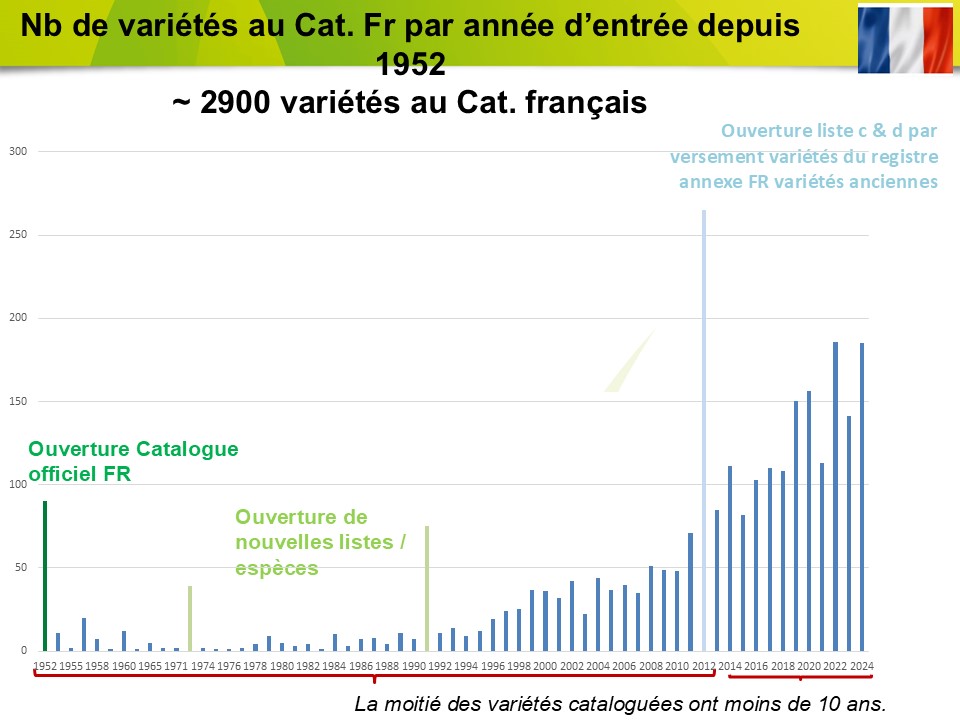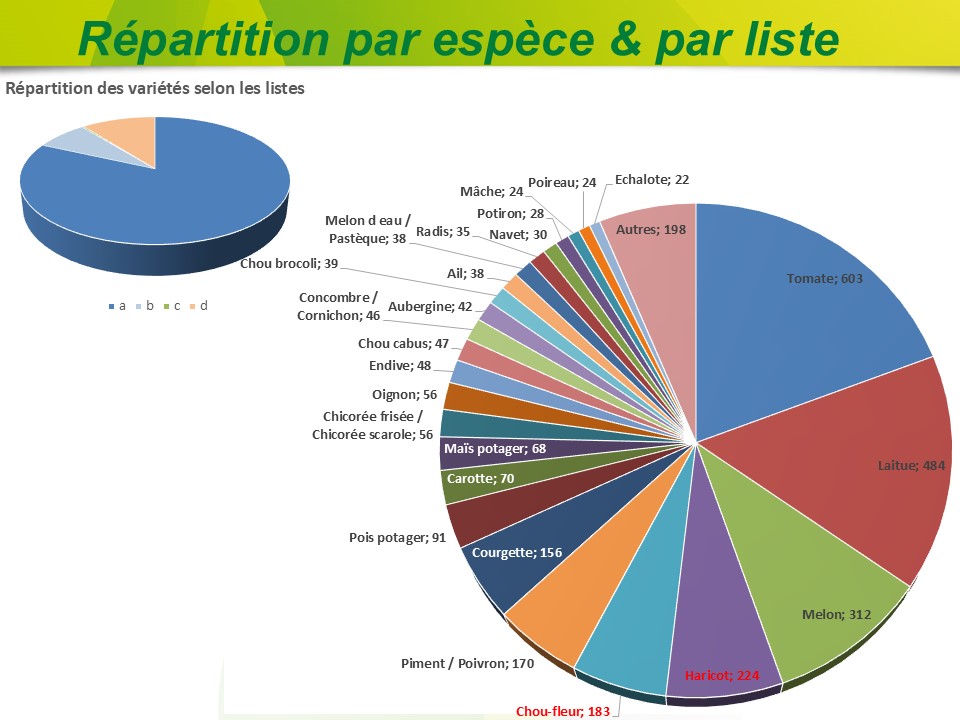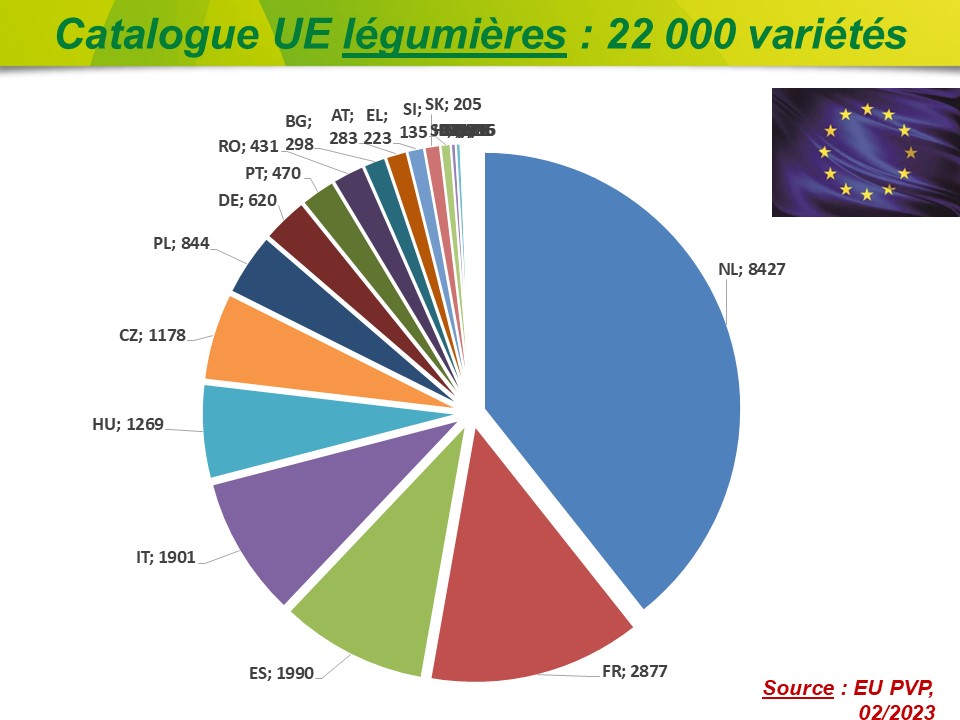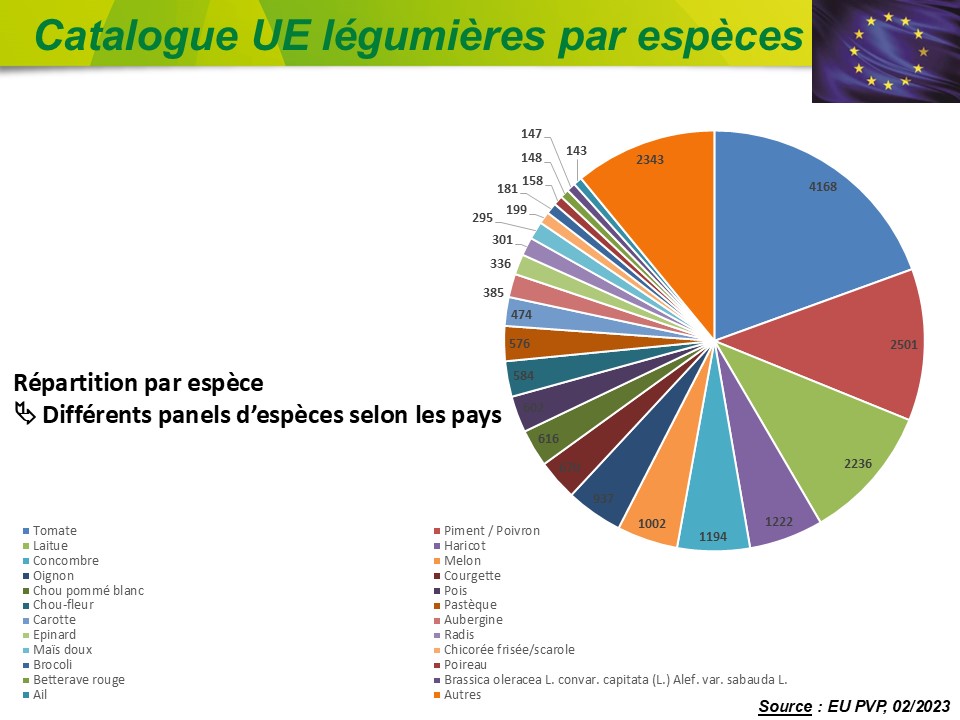France
February 3, 2025

On 12 December 2024, the Vegetable Species Section met for the first time as part of the new CTPS 2024-2029 mandate. With a significant renewal of its membership, this first meeting was an opportunity to share information on the CTPS’s missions and operations, as well as on the components and specific features of the Official Catalogue of Vegetable Varieties. Genetic resistance to disease, one of the core areas of vegetable breeding and DUS studies, has seen its CTPS Classification modified to include new pathosystems. Also, in order to optimise the tools used to validate alleged genetic resistances (biotests and molecular markers), GEVES presented its strategy for securely combining molecular markers and biotests for 3 of these characteristics in tomato. In addition to the ongoing discussions on the future European regulatory framework for variety registration (Plant Reproductive Material), this meeting validated two amendments to the CTPS Technical Regulations for registration, one concerning Provisional Sales Authorisations for vegetatively propagated varieties (garlic, shallot in particular) and the other concerning the frequency of Maintenance Controls.
With a new mandate for the CTPS for the period 2024-2029 and a new Chairman of the Section, Fabrice Marty, as well as a significant renewal of the composition of the Vegetables Section, the 12/12 meeting had a back-to-school feel to it… with 13 days to go before Christmas. The CTPS’s mission and working framework were presented in detail. The specific features of technical studies for the registration of vegetable varieties were shared (the so-called D.U.S. study only, the importance of genetic resistance to diseases and of Provisional Sales Authorisations, etc.) as well as the components of the Official Catalogue of Vegetable Varieties (50% of registered vegetable varieties are more than 10 years old, diversity of the genetic structures of varieties, no obligation for official seed certification but Maintenance Controls, importance of the d list of varieties mainly intended for amateurs, etc.). The prospects for the Section’s work were also discussed: the impact of the development of reference variety collections on the conduct of a DUS study (quality, cost, etc.), support for the growing development of genetic resistance characteristics (methodological work to enhance their value via registration, epidemiology to prioritise this methodological work, etc.) or the use of molecular biology tools to optimise trials.




On this point of the use of molecular biology tools, GEVES presented its strategy of safely combining molecular markers and biotests for 3 of these characteristics in tomato (Fol:1, ToMV and TSWV). Molecular markers are used in the international DUS study protocols (UPOV and CPVO) and, as part of a European INVITE project ending at the end of 2024, have been used to draw up generic recommendations for the validation of a new molecular marker specific to a characteristic for DUS testing. These molecular markers, linked to genetic resistance to Fol:1, ToMV and TSWV, will be used for all the varieties under study from the 2025 season onwards. The biotests will also be applied to all these varieties. This will provide feedback so that we can eventually define an approach that combines these two types of study in a secure way.
The sanitary quality of GEVES DUS trials is an essential condition for drawing conclusions regarding the distinction between varieties, and the sanitary quality of the seed supplied as part of these studies (varieties applying for registration and/or protection and control varieties) remains an important element. In this context, from 01/01/2025, the evolution of the regulatory status of ToBRFV (tomato brown rough fruit virus) from Quarantine Pest to Regulated Non-Quarantine Pest will require the industry to analyse seeds to validate the absence of this virus. For DUS trials at GEVES, the Section approved the continuation of the obligation to provide a plant passport for tomato and pepper varieties, whether they are to be studied for registration in the Official Catalogue and/or for the issue of a PVC or as control varieties.
One of the core areas of vegetable breeding and DUS studies of vegetable varieties, namely genetic resistance to diseases, has been the subject of a revision of the CTPS Disease Classification to include new pathosystems (mildew in lamb’s lettuce has been placed in class 1, races F and J of cladosporiosis in tomatoes, CGMMV in cucumbers and races 6 and 7 of powdery mildew in melons (Podosphaera xanthii) have been placed in class 2. The CTPS disease classification is used to rank pathosystems in order of importance in terms of the impact of these diseases on the industry and the work being done to create varieties resistant to these diseases. Class 2 allows tests to be carried out by GEVES’s National Seed Testing Station (SNES) for a variety with alleged resistance to a disease, thereby officially validating the resistance, information that can be used by the industry downstream of the registration process.
With regard to the revision of the Technical Regulations for registration, two changes were proposed to the Section, which approved them:
- the possibility for GEVES to validate a Provisional Sales Authorisation for a variety distributed by vegetative propagation ( notably shallots) on the sole technical basis of at least one DUS trial conducted at GEVES, without having to ask the Section (the other method of issuing a PMA for this type of variety is based on the applicant setting up a trial before conducting a DUS study),
- Adjustment of the frequency of Maintenance Controls during the variety registration period: 3 years (instead of 2 years before the registration deadline) but also a control 3 years after the first registration for population type varieties.
With regard to the experience acquired by GEVES in studying population varieties, it should be noted that some (carrot) are being studied as part of the Temporary Experimentation (directive 2022/1648) linked to the EU Regulation in application since 2018 on organic agriculture and others (courgette) are being studied outside this Temporary Experimentation. To support the possible extension of the number of species covered by this Experiment (carrot and kohlrabi currently in vegetable crops), GEVES has drawn up a list of DUS characteristics for courgette in 2024 for which the Homogeneity evaluation could derogate from the rules of the current DUS protocol. These criteria have been shared as part of the European Liveseeding project, in which GEVES is a partner.
In terms of supporting sectors in adapting crops to climate change and the agro-ecological transition, the Section meeting on 12/12 was an opportunity for UNILET to present the priorities for R&D work in the processed vegetable sector for 2025-2027. As part of the PARSADA (Strategic Action Plan to Anticipate the Potential European Withdrawal of Active Substances), the call for projects for 2025-2027 focuses on resistance to viruses and sclerotinia. Interested parties are invited to contact UNILET.